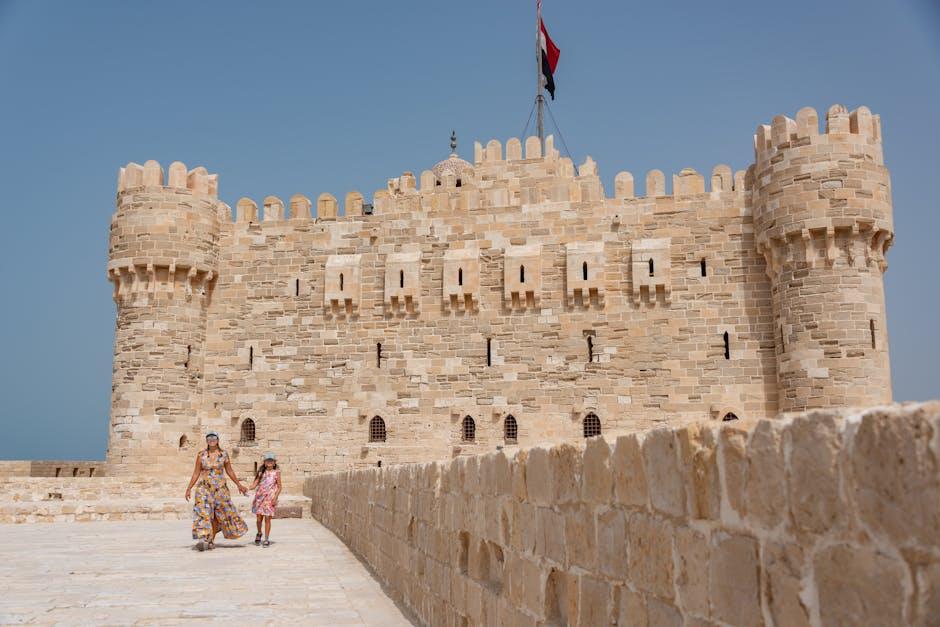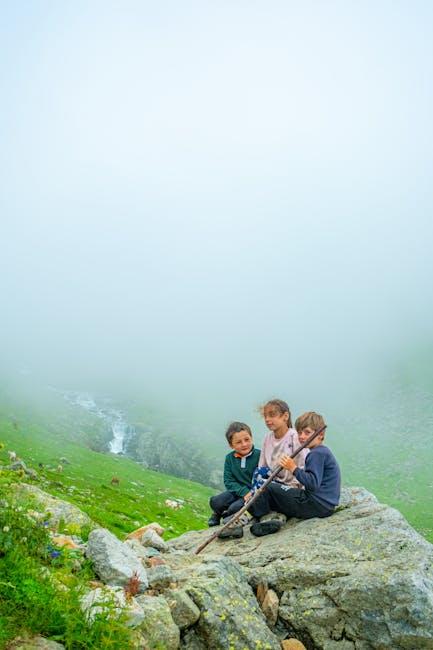In an era where educational experiences extend far beyond the four walls of a classroom, poverty/” title=”Family Trips: Should Kids Witness Extreme Poverty?”>family trips have emerged as a powerful tool for shaping young minds. Among the myriad of destinations families can explore, places that highlight the realities of poverty offer unique, albeit challenging, opportunities for learning. These journeys invite families to step into environments that contrast sharply with their own, sparking conversations that can lead to deeper understanding and empathy. In this article, we delve into the delicate balance of exposing children to the stark truths of poverty while nurturing their curiosity and compassion. Can these eye-opening adventures truly educate and inspire the next generation, or do they risk oversimplifying complex social issues? Join us as we explore the potential of family trips to serve as a catalyst for meaningful education, fostering a generation that is both informed and empathetic.
Understanding Poverty Through Travel
Traveling as a family to regions where poverty is prevalent can be a profound educational experience for young minds. Such journeys offer a real-world classroom where children can learn about socioeconomic disparities firsthand. These experiences can foster empathy and understanding, as children witness the resilience and resourcefulness of communities facing economic challenges. By interacting with locals and participating in community activities, families can gain insights into the complexities of poverty that go beyond textbook definitions.
- Hands-on Learning: Visiting community projects or NGOs can provide children with practical knowledge about efforts to combat poverty.
- Cultural Exchange: Engaging with local traditions and stories helps children appreciate diverse lifestyles and viewpoints.
- Value of Gratitude: Witnessing different living conditions can teach children to appreciate their own privileges and encourage a sense of gratitude.
By exploring these issues during travel, families can open dialogues about the importance of social responsibility and the impact of global inequalities. Such trips can inspire young minds to think critically about the world and their role within it, planting seeds for a more compassionate and informed future generation.
Engaging Young Minds with Real-World Lessons
In an era where digital distractions are abundant, it becomes imperative to engage young minds through meaningful experiences that bridge the gap between classroom theories and the real world. One innovative approach to this is incorporating family trips that explore social issues such as poverty. Such journeys can serve as powerful teaching tools, offering children a firsthand look into diverse lifestyles and socio-economic conditions. As they navigate through these experiences, they gain a deeper understanding of empathy, resilience, and global citizenship.
- Empathy Development: Witnessing different living conditions fosters a sense of empathy, encouraging children to appreciate their own privileges while understanding others’ struggles.
- Critical Thinking: Real-world observations challenge young minds to ask questions, analyze causes, and contemplate solutions, thus honing their critical thinking skills.
- Global Awareness: Exposure to varied socio-economic settings enhances global awareness, nurturing a generation that is informed and conscientious about global disparities.
Family trips focused on social issues can transform into an interactive classroom without walls, where every street corner and community interaction becomes a lesson. These experiences not only educate but also inspire action, planting seeds for a more compassionate and informed future. Through these travels, children are not just passive observers but active participants in learning, making education a journey rather than a destination.

Creating Meaningful Family Travel Experiences
Traveling as a family is not just about visiting famous landmarks or relaxing on a beach. It is a profound opportunity to expose children to the diverse realities of the world, including areas where poverty is a daily challenge. By visiting places less traveled, families can offer their children invaluable lessons in empathy, gratitude, and resilience. Engaging with local communities and witnessing their way of life can spark meaningful conversations and broaden young minds beyond the confines of textbooks.
- Engagement with Local Culture: Encourage children to interact with local artisans, participate in community events, or even volunteer for a day. These experiences can foster a deeper understanding and appreciation of different cultures and lifestyles.
- Learning through Observation: Visiting areas affected by poverty allows children to observe the strength and creativity of communities in overcoming challenges. This can inspire them to think critically and compassionately about global issues.
- Storytelling and Reflection: After the trip, encourage children to share their experiences and reflections through storytelling or journaling. This helps in solidifying their understanding and personal growth.

Recommendations for Thoughtful Family Itineraries
Crafting an itinerary that both enlightens and engages young minds can be a rewarding challenge. Begin by selecting destinations that offer immersive learning experiences. Consider visiting local community centers, where families can participate in workshops that highlight the resilience and creativity of communities facing economic challenges. Such visits can provide a balanced view of poverty, showing both the struggles and the innovative solutions emerging in these areas.
Include activities that foster empathy and understanding through hands-on involvement. Volunteering at a community garden or attending storytelling sessions led by residents can be deeply impactful. Here are a few ideas to consider:
- Interactive Museum Tours: Opt for museums that offer interactive exhibits about social justice and community development.
- Local Cuisine Exploration: Engage in cooking classes that not only teach local recipes but also delve into the history and culture behind the ingredients.
- Nature Walks with a Purpose: Choose guided walks that focus on environmental challenges and community efforts to combat them.
Such thoughtfully planned trips can transform a family vacation into an educational journey that enriches both young minds and the family as a whole.






























